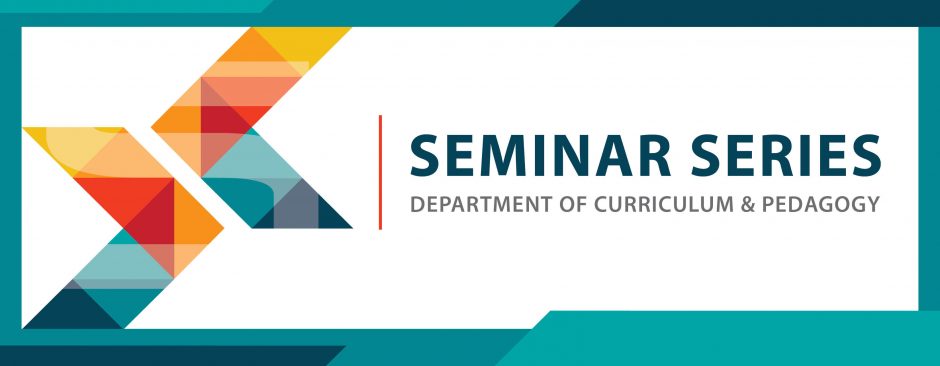
Dr. Ying Ma | Kwantlen Polytechnic University, Canada
Friday, December 15, 2023 | 12:30 – 2:00 p.m. (PST) | Via Zoom
Faculty Host: Dr. William Pinar
View the Seminar Poster
Abstract
In recent decades, educational research efforts have continued to focus on the epistemological rather than the axiological aspects of teaching (i.e., is questions rather than ought questions). This seminar appropriates Aristotelian ethical languages and beyond to re-understand teachers’ practical identities. Grounded in my own teaching narratives, I discuss both the prevalence and inadequacy of teacher identity as technician or guide, tracing back to the Aristotelian intellectual virtues of techne, episteme, and sophia. The paper continues to discuss the ethical ground of teaching, recovering Aristotelian concept of phronesis. Then, it goes beyond the homogeneous schema of Aristotelian ethical tradition by drawing on Caputo’s notion of meta-phronesis and then on Lear’s and Bernstein’s thoughts and proposes teacher’s practical identity as an ironic identity that is constantly disturbed and reshaped by ironic questions, ironic uncanniness and ironic unity of ethical passion.
Teachers are encouraged to be both attached to and detached from their lived teaching experiences to embrace the possibilities of transcending social pretenses or any fixated identities and to teach, act and live ironically and authentically with integrity and openness.
Short Bio
Dr. Ying Ma is currently an instructor in the Department of Educational Studies at Kwantlen Polytechnic University. Ying spent seven years teaching high school in Beijing, China, before embarking on her graduate studies at UBC. UBC holds a special significance as her intellectual home. She pursued her master’s degree at the Department of Educational Studies (EDST) and continued her academic pursuits at the Department of Curriculum and Pedagogy (EDCP) for her Ph.D.
Drawing from her rich experience in both secondary and post-secondary education in China and Canada, Ying integrates her insights into her research and teaching. Her research interests span educational philosophy, curriculum studies, narrative inquiry, teacher education, and ethics. Of particular significance is her exploration of the in-between spaces of philosophy, culture, ethics, and education.